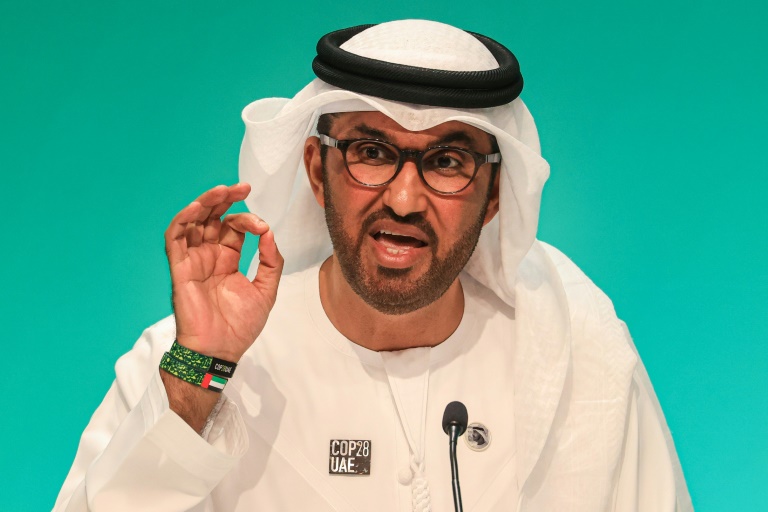The president of the UN climate summit has said that ministers and negotiators must come to the vital final meetings of Cop28 without prepared statements, without rigid red lines, and be prepared to compromise.
Sultan Al Jaber on Sunday, convened a majlis of all countries, a meeting in the traditional form of an elders’ conference in the United Arab Emirates. His position is now pivotal to the talks as they enter their final days.
According to reports, the climate talks have reached an impasse over whether to phase out or phase down fossil fuels, with just a day and a half of official negotiating time left before the fortnight-long summit is scheduled to conclude on Tuesday morning.
“I want everyone to come prepared with solutions,” said Al Jaber. “I want everyone to come ready to be flexible and to accept compromise. I told everyone not to come with any prepared statements, and no prescribed positions. I really want everyone to rise above self-interests and to start thinking of the common good.”
Read also: UN outlines roadmap to combat global hunger amid climate crisis
But there is some optimism coming from the discussions.
Also reacting, Catherine Abreu, who is the executive director of Destination Zero, said: “In eight years of attending climate talks, I have never felt more that we were talking about what really matters. Hearing ministers from all around the world talk straight about the realities of phasing out fossil fuels is something I could not have imagined happening in this process even two years ago.
Speaking further, she said “What’s clear after this Majlis dialogue at Cop28 is that there is overwhelming consensus that phasing out fossil fuels and scaling up renewable energy is absolutely necessary to hold to the promise of the Paris Agreement and keep the hope of 1.5 alive. It is also clear that the task ahead is enormous, and will require courage and conviction. Rich countries need to provide the financial and technological support to make it happen, and equity demands that those with greater responsibility move first.”
Although the question of the future of fossil fuels is the main sticking point, it is not the only one as developing countries are also angry that their calls for help with adapting to the effects of the climate crisis have not been answered by rich countries at the talks.
Adaptation finance refers to the funds needed to improve the infrastructure of poor countries, for instance to set up early warning systems of storms or other extreme weather events, or stronger bridges that do not wash away in floods, or help to grow mangrove swamps to protect coastlines.
Story was adapted from the Guardian.
